Welcome to the latest edition of our ‘5 Questions with Series.’ Today, we have the pleasure of catching up with Henri Parmentier, Senior Product Manager at ADLINK, our PSA Certified Level 1 partner. In this blog, Henri delves into the imminent surge in demand for connected devices, shedding light on ADLINK’s proactive measures to align with forthcoming regulations.
A pivotal step in their preparation involves strategic partnerships with other PSA Certified partners, such as Canonical and Foundries.io. Together, they are joining forces to keep edge devices secure and patchable for the lifecycle of those devices. At ADLINK, they firmly believe that the industry is on track to enhance trust within the ecosystem.

Quote
Building trust on which consumers can rely is another facet of security that requires nonstop effort, and is one that we have continued to work on for 20+ years and counting.
Q1. What excites you most about the future of connected devices?
I’m excited about how connected devices can simplify our daily lives, everything from intelligent wearables like smartwatches to household appliances, such as remote-controlled ovens and washers, and industrial equipment. The bottom line is that by interconnecting devices we can integrate artificial intelligence, machine learning, and even deep learning into your daily work and life, which opens up a brand-new world of possibilities for personalized experiences. That said, we are bound to see a profound growing demand for connected devices, and they will become a driving force to transcend various industries, especially in sectors where hard real-time workloads are required.
Q2. What are some of the greatest pressures facing your sector?
In the embedded market, many product lines up to 10 years ago had mainly been x86-based. Arm-based devices offer greater performance with significantly lower power consumption. However, it’s hard for software vendors to migrate as there is an overabundance of varying Arm-based vendors all having a different approach to BSP setup. To address this, we have stepped forward to, and always will, be one of the pioneers in co-establishing open Computer-on-Module standards.
By committing to a set of open, modular standards that all developers can follow, we all can save significant time in the early stages of product development. Most importantly, using a modular approach, your designs are transferable to future products leading to accelerated Time-to-Market. What’s more, our clients never have to worry about a lack of expertise or resources on their part, as we can take of any area that they lack, whether it is design and prototyping, validation, or production management.
Q3. How have you seen customer/consumer demand change over time in your industry?
The growing demand for Arm-based designs to those of x86-based has been eminent, because of the former’s superior performance to power consumption ratio over the other throughout a product’s lifecycle. That is, x86-based counterparts to those of Arm-based devices could consume triple the amount of energy translating to costs, which add to a customer’s Total Cost of Ownership (TCO).
There has been a change in terms of expected features and performance. We adapted to this by looking at the mobile devices industry, where performance and features are a must, and established strategic ties with the world’s top two vendors to bring their silicon to markets they could not reach in terms of security and data privacy, we already have a strong reputation among our customer base in this regard. On top of this, we also partner with major software leaders to address exactly those security-related concerns.
Quote
Regulations, security, and time-to-market are all crucial factors that customers must consider before foregoing a project. In the past, all too often companies with little more than low pricing brought insecure, poorly designed products to the market with no way for customers to update them, even when security breaches occurred.
Q4. In your opinion, how do regulations, time-to-market, and security interact, and impact innovation?
Regulations, security, and time-to-market are all crucial factors that customers must consider before foregoing a project. In the past, all too often companies with little more than low pricing brought insecure, poorly designed products to the market with no way for customers to update them, even when security breaches occurred. Thankfully, the upcoming Cyber Resilience Act (CRA) and its American / Australian counterparts will end this.
ADLINK always actively looks ahead and prepares for upcoming regulations. For instance, we have prepared and followed IEC62443 for 2 years during development. As security is a priority that cannot be stressed more, we always try to stay ahead and act even before the announcement of related regulations. We see regulations as a surplus to the industry. In short, they weed out the players who want to make a quick buck and are not willing to invest in the future. It surely does not stop us from innovating but it does bring extra steps that are necessary though time-consuming.
Security is a joint effort. Like how Dell and HP ship millions of notebooks, but all of their security patches come from Microsoft. This is perfectly normal as both Dell and HP are hardware companies and Microsoft’s core competence is software. We are going a similar route by partnering up with for example Canonical and Foundries.io to keep edge devices secure and patchable for the lifecycle of those devices.
Q5. What can we do collectively to enhance trust in the ecosystem, and among consumers more widely?
We are on a good track, continuously investing in software standardization, ease of implementation, and the development of high-performance and power-saving SoCs. I believe we are now at the tipping point where software maturity is on par or becoming higher than what we can provide with x86-based platforms. To strengthen security as a whole, we are always active in committees that oversee standards, which has yielded great results for hardware standards. We would need a similar setup for firmware/software standardization. Building trust on which consumers can rely is another facet of security that requires nonstop effort, and is one that we have continued to work on for 20+ years and counting.

About Henri Parmentier
Henri Parmentier is a Senior Product Manager at ADLINK’s Computer on Modules BU who has successfully guided embedded customers for more than 10 years, and is always enthusiastic to bring the latest technologies to customers.
